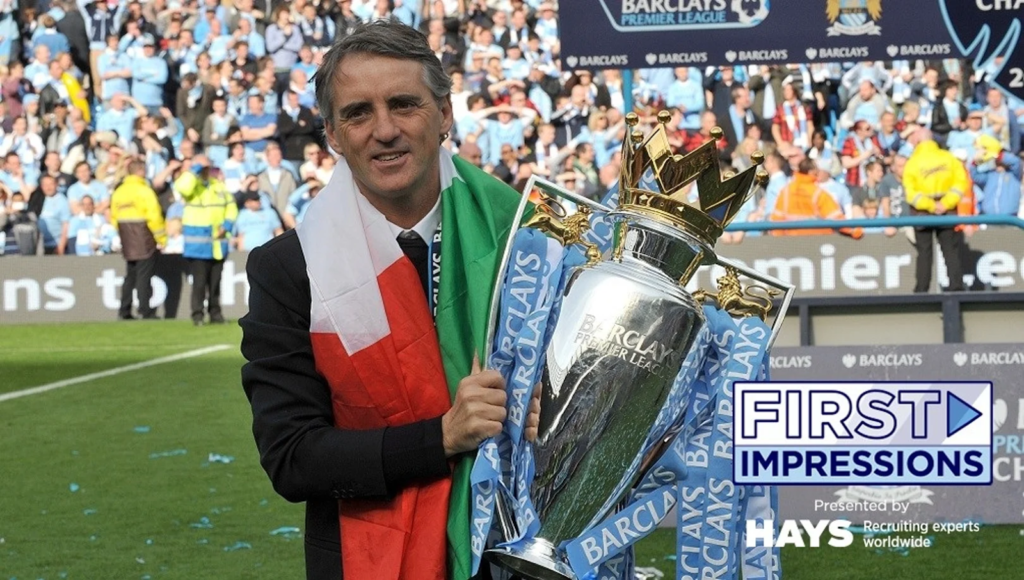
Table of Contents
Roberto Mancini has long been a prominent figure in football, known for his leadership skills, tactical ingenuity, and deep understanding of the game. His managerial career has spanned several top clubs across Europe, but his most remarkable achievement has been with the Italian national team. Under his guidance, Italy has experienced a revival, achieving success on the international stage and rekindling the passion of Italian fans. This article delves into Mancini’s journey, his leadership style, and the profound impact he’s had on Italian football.
Catch all the action live on socolive tv, where you can watch top football leagues and players in real time! Experience the thrill of live matches, witness every goal, save, and exciting play. With high-quality streaming, socolive tv brings you closer to the heart of football.
From Player to Manager: The Early Years
Born in 1964 in Jesi, Italy, Mancini began his career as a talented forward, known for his vision, creativity, and technical skills. His playing days with Sampdoria, Lazio, and the Italian national team set the stage for his career in management, where he sought to apply his understanding of the game from a different perspective. Mancini’s time on the pitch gave him a tactical edge, allowing him to read the game and devise strategies with a player’s insight.
Mancini’s managerial career started with Fiorentina, where he quickly gained a reputation for his innovative tactics and an ability to motivate players. From there, he went on to manage Lazio, where he led the team to a Coppa Italia victory. This success marked him as one of Italy’s most promising young managers, eventually paving the way for his appointment at Inter Milan.
Building a Winning Mentality at Inter Milan
Mancini’s tenure at Inter Milan was a defining period in his career. He joined the club in 2004 and led them to three consecutive Serie A titles, re-establishing Inter as a dominant force in Italian football. His success with Inter wasn’t only about trophies but also about transforming the mentality within the squad. Mancini instilled a strong sense of discipline and resilience in his players, demanding the highest standards in both training and matches. This winning mentality became the cornerstone of his leadership style.
At Inter, Mancini showcased his tactical versatility. He was known for adapting his formations and strategies based on the strengths of his players and the weaknesses of his opponents. His focus on flexibility helped Inter navigate the demanding Serie A schedule, allowing them to remain competitive throughout the season. By the time Mancini left Inter, he had solidified his reputation as a manager capable of leading top-tier teams to victory.
The Shift to International Management
Mancini’s career took another leap when he was appointed manager of the Italian national team in 2018. Italy was at a low point, having failed to qualify for the 2018 World Cup—a disappointment that shocked fans and shook the foundations of Italian football. Mancini accepted the role with a mission to rebuild and rejuvenate the squad, bringing in young talent and fostering a sense of unity and purpose among the players.
Mancini implemented an attacking style, emphasising possession and fluid movement. His approach represented a shift from Italy’s traditional defensive mindset, known as “catenaccio.” Instead of relying solely on a solid backline, Mancini encouraged his team to play with freedom and creativity, blending Italy’s defensive strengths with a more proactive and entertaining approach. This shift helped to attract young, dynamic players who thrived in Mancini’s system, breathing new life into the squad.
Leading Italy to European Glory: The UEFA Euro 2020 Triumph
Mancini’s efforts culminated in Italy’s victory at the UEFA Euro 2020 tournament. The team’s journey was nothing short of inspiring, as they showcased skill, unity, and resilience throughout the tournament. Italy’s unbeaten run, which extended beyond the Euros, was a testament to Mancini’s impact. Under his leadership, Italy developed into a cohesive unit that could compete against the best teams in Europe.
Italy’s triumph in the final against England, held at Wembley Stadium, exemplified Mancini’s influence on the team. Despite a tense atmosphere and a strong English side, Italy held their nerve and ultimately won on penalties. Mancini’s calm demeanor during the match reassured his players, helping them maintain composure under immense pressure. His tactical decisions throughout the tournament, including substitutions and formation adjustments, demonstrated his deep understanding of the game and his ability to inspire confidence in his players.
The Euro 2020 victory was celebrated not only for the trophy but also for what it symbolised—a revival of Italian football and a return to the global stage. Mancini’s role in orchestrating this success made him a national hero, and his leadership inspired a new generation of Italian football fans.
socolive tv offers uninterrupted, live streaming of football’s biggest games! Follow your favourite teams, watch breathtaking goals, and immerse yourself in every moment of the match. Whether it’s a league game or an international showdown, socolive tv delivers the ultimate football experience, right at your fingertips.
Mancini’s Leadership Style: Calm, Composed, and Inspiring
One of the key attributes that sets Mancini apart as a manager is his calm and composed demeanour. Unlike some coaches who are known for their fiery touchline antics, Mancini maintains a sense of tranquillity, even in high-pressure situations. This approach has a positive impact on his players, who look to their manager for guidance and reassurance. Mancini’s calm presence helps his teams remain focused, preventing panic during crucial moments.
Mancini’s leadership style is also defined by his emphasis on teamwork and unity. He encourages open communication and fosters a sense of camaraderie within the squad. Mancini values each player’s contribution, ensuring that every individual feels integral to the team’s success. This inclusive approach strengthens the team’s bond, leading to a collective drive to achieve their goals.
Embracing Youth and Developing Talent
One of Mancini’s greatest contributions to Italian football has been his commitment to integrating young players into the national team. He has given opportunities to emerging talents like Nicolo Barella, Gianluigi Donnarumma, and Federico Chiesa, who have since become key players for Italy. Mancini’s trust in young talent reflects his forward-thinking approach, as he understands the importance of developing players who can carry Italian football into the future.
Mancini’s faith in youth has also reinvigorated the Italian league, as clubs now place greater emphasis on nurturing homegrown talent. His work with young players has established a new model for success, one that emphasises growth, potential, and a long-term vision for Italian football.
Beyond Tactics: Mancini’s Cultural Impact on Italian Football
Mancini’s influence goes beyond the tactical and technical aspects of the game. He has helped reshape the culture of Italian football, encouraging a more open, positive, and progressive mindset. His success with the national team has inspired Italian fans to embrace a more inclusive and optimistic approach, moving away from the sometimes defensive and cautious mindset of the past.
Mancini’s approach has been instrumental in rebuilding the connection between the Italian national team and its supporters. The joy and pride that the Euro 2020 victory brought to Italy demonstrated how football can unite a nation and uplift spirits. Mancini’s work has helped rekindle a love for the game among Italian fans, who now see the national team as a source of pride and inspiration.
Legacy and Future Impact
Roberto Mancini’s journey in Italian football is a testament to the power of leadership, adaptability, and vision. He has shown that success is not only measured by titles but also by the lasting impact a manager can have on a team, a nation, and the game itself. Mancini’s influence will continue to shape Italian football for years to come, as his legacy inspires future generations of players and managers.
As he looks to the future, Mancini’s commitment to excellence remains unwavering. His work with the Italian national team has already cemented his status as one of Italy’s greatest managers, but his passion for the game suggests that his contributions are far from over. Mancini’s leadership and innovative approach have set a new standard in Italian football, one that values creativity, resilience, and a commitment to nurturing talent.
Conclusion
Roberto Mancini’s leadership has transformed Italian football, breathing new life into the national team and inspiring fans across the country. His success with Italy at Euro 2020, his emphasis on youth development, and his positive approach to the game have left an indelible mark on the sport. Mancini’s legacy is one of resilience, vision, and an unrelenting commitment to excellence—qualities that will continue to shape the future of Italian football for years to come.


